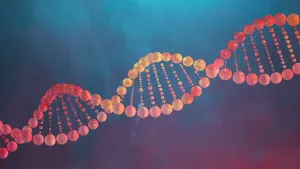Biology, the captivating study of life itself, forms the foundation of our understanding of the living world. It is a scientific exploration that delves into the intricate processes, structures, and interactions that define living organisms, both large and small. At its core, biology is built upon several fundamental concepts that serve as the building blocks of our understanding of life's complexities.
Cells: The Cornerstones of Life
The cell, often regarded as nature's fundamental unit, lies at the heart of biology. It's the microscopic entity where life's magic unfolds, encompassing everything from single-celled organisms to complex multicellular organisms. Each cell is a bustling universe in itself, with distinct structures and specialized functions, collectively orchestrating the symphony of life.
Genes and DNA: Blueprint of Inheritance
Genes are the molecular instructions encoded in DNA that determine an organism's traits and characteristics. This genetic information is passed from one generation to the next, laying the groundwork for the diversity and continuity of life. The study of genetics not only provides insights into heredity but also guides our understanding of diseases, evolution, and the potential for genetic modifications.
Evolution: The Dance of Adaptation
Evolution serves as biology's grand narrative, explaining how life has evolved and diversified over billions of years. Through the process of natural selection, organisms with advantageous traits are more likely to survive and pass on their genetic legacy. This gradual change leads to the rich tapestry of species we see today, each intricately adapted to its environment.
Ecosystems and Interdependence
Biology reveals the intricate web of interactions between organisms and their environment. Ecosystems showcase the delicate balance between living and non-living components, demonstrating how every organism, no matter how small, plays a vital role in maintaining the overall health of the ecosystem.
The History of Biology
The journey of biology is a tale of human curiosity and ingenuity, stretching back to ancient civilizations. These early observers laid the groundwork for the scientific exploration that followed, contributing to the development of a field that continues to shape our understanding of life.
Ancient Pioneers: The Origins of Observations
Millennia ago, civilizations like the Egyptians and Greeks made the first forays into understanding life. They pondered over the nature of organisms, categorized species, and speculated on the origins of life itself. These ancient musings paved the way for more structured biological thought.
Microscopes and Unveiling the Microcosm:
The 17th century marked a turning point with the invention of the microscope. Antonie van Leeuwenhoek's discovery of microscopic life ignited a new realm of exploration, revealing a universe of organisms previously invisible to the naked eye. This newfound ability to observe and study microorganisms laid the foundation for the fields of microbiology and cell biology.
Darwin's Evolutionary Revelation:
Charles Darwin's groundbreaking work on natural selection and evolution transformed biology in the 19th century. His observations during the voyage of the HMS Beagle and his subsequent publication, "On the Origin of Species," presented a revolutionary concept that challenged prevailing beliefs and sparked debates that still reverberate today. Darwin's insights into adaptation and common ancestry reshaped the landscape of biological understanding.
Modern Marvels and Technological Leaps:
The 20th and 21st centuries witnessed remarkable advancements driven by technology. The discovery of the structure of DNA by Watson and Crick laid the groundwork for the field of molecular biology, leading to breakthroughs in genetics and biotechnology. The advent of tools like gene sequencing and CRISPR-Cas9 have opened doors to unraveling genetic mysteries and manipulating biological systems for various applications.
The Many Branches Of Biology
Biology is a sprawling tree with branches that extend into various specialized disciplines, each focusing on a unique aspect of life. These branches collectively contribute to our holistic understanding of the living world.
Botany: The Study of Plants
Botany explores the world of plants, from the tiniest algae to the towering trees. It encompasses the study of plant anatomy, physiology, ecology, and evolution, shedding light on the essential role plants play in ecosystems and human life.
Zoology: Unveiling Animal Kingdom
Zoology centers on the study of animals, ranging from microscopic organisms to majestic creatures. It involves understanding animal behavior, anatomy, classification, and conservation, offering insights into the fascinating diversity of life forms on Earth.
Microbiology: Microscopic Marvels
Microbiology delves into the realm of microorganisms, including bacteria, viruses, and fungi. These tiny entities wield immense influence on various aspects of life, from health and disease to environmental processes.
Genetics: Unlocking the Code of Life
Genetics is the study of genes and heredity, unravelling the mysteries of how traits are passed from one generation to the next. It plays a pivotal role in understanding inheritance patterns, genetic disorders, and the mechanisms of evolution.
Ecology: Exploring Ecosystem Dynamics
Ecology examines the interactions between organisms and their environment, delving into the intricate balance that sustains life. It sheds light on topics such as food webs, energy flow, and conservation.
Biochemistry: Molecules of Life
Biochemistry peers into the molecular level of living organisms, exploring the chemical processes that drive life. It encompasses the study of molecules like proteins, carbohydrates, and nucleic acids, unraveling the mechanisms behind cellular functions.
The Multidisciplinary Nature Of Biology
Biology is a crossroads where numerous scientific disciplines intersect and collaborate, reflecting its inherent complexity and interconnectedness.
Chemistry and Biology: Partners in Understanding
Chemistry underpins many biological processes. From understanding cellular reactions to the intricate mechanisms of metabolism, chemistry provides the molecular insights that shape our understanding of life.
Physics in Biological Systems
Physics contributes to biology by explaining biomechanics, the study of how living organisms move and interact. Concepts like force, motion, and energy illuminate the mechanics of organisms, from the flight of birds to the locomotion of animals.
Mathematics and Modeling
Mathematics plays a crucial role in modeling biological processes, allowing scientists to simulate complex systems and predict outcomes. From population dynamics to genetic inheritance, mathematical models help uncover patterns and make predictions.
What Do Biologists Do?
Biologists are explorers of life, delving into the intricacies of living organisms and their interactions. Their work encompasses a wide range of activities, all aimed at unraveling the mysteries of life.
In essence, biology is the exploration of life's wonders, from the tiniest cells to the grandest ecosystems. It's a journey that intertwines observation, experimentation, and collaboration across various disciplines, all with the aim of unraveling the enigmatic tapestry of existence. Whether unlocking the secrets of DNA or advocating for the protection of endangered species, biologists contribute to our collective understanding of life's intricacies, leaving an indelible mark on the ever-evolving field of biology.

FAQs about the Fascinating World of Biology
What is biology all about?
Biology is the scientific study of life, encompassing everything from the smallest cells to the grandest ecosystems. It explores the structures, processes, and interactions that define living organisms and their environments.
Why is understanding cells important in biology?
Cells are the fundamental units of life, and studying them is crucial to understanding how organisms function and interact. Cells hold the key to genetics, growth, reproduction, and the intricate mechanisms that keep living beings alive.
How does evolution fit into biology?
Evolution is the central theme in biology that explains how species change and adapt over time. It is driven by natural selection, where advantageous traits are favored, leading to the incredible diversity of life on Earth.
What role do different branches of biology play?
Biology has several branches, each focusing on specific aspects of life. Botany studies plants, zoology delves into animals, microbiology explores microorganisms, genetics unravels inheritance, ecology examines ecosystems, and biochemistry dives into molecular processes.
How has technology shaped modern biology?
Technological advancements, like microscopes, gene sequencing, and genetic engineering tools, have revolutionized biology. They allow us to observe and manipulate biological systems at levels previously unimaginable, driving breakthroughs in various fields.






